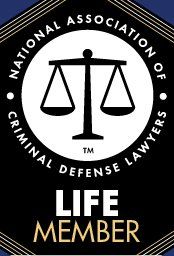Identity and Credit Card Theft
Kitsap's Expert Theft Attorney
Free Case Evaluation
What is Theft?
Theft is defined as: To wrongfully obtain or exert unauthorized control over the property or services of another or the value thereof, with intent to deprive him or her of such property or services; or
(b)
By color or aid of deception to obtain control over the property or services of another or the value thereof, with intent to deprive him or her of such property or services; or
(c)
To appropriate lost or misdelivered property or services of another, or the value thereof, with intent to deprive him or her of such property or services.
(2)
In any prosecution for theft, it shall be a sufficient defense that:
(a)
The property or service was appropriated openly and avowedly under a claim of title made in good faith, even though the claim be untenable; or
(b)
The property was merchandise pallets that were received by a pallet recycler or repairer in the ordinary course of its business.
What are the Degrees of Theft in Washington State?
Theft is separated into three different categories, called degrees. The degrees are determined by the value of the stolen item or service:
- Third-degree theft. The item or service is worth less than $750.
- Second-degree theft. The item or service is worth more than $750 but less than $5,000.
- First-degree theft. The item or service is worth more than $5,000.
Each degree has an associated maximimum sentence and/or fine.
Call Pimentel & Associates for expert help at (360) 519-3040 any hour.
Maximum Sentences for Washington State Theft
- Third-degree theft. This is a gross misdemeanor. If convicted the maximum sentence is 364 days in jail and/or a $5,000 fine.
- Second-degree theft. This is a Class C felony (serious crime). The maximum sentence is 5 years in jail and/or a $10,000 fine.
- First-degree theft. This is ca Class B felony. The maximum sentence is 10 years in jail and/or a $20,000 fine.
Can this Affect my Immigration Status?
Theft is considered a crime of moral turpitude and can be subject to immediate deportation. If you are not a citizen of the United States and you are charged with theft, it is imperative that you hire an aggressive criminal defense attorney that understands not just criminal law but immigration consequences as well.
What Are Some of the Consequences?
Theft is considered a crime of moral turpitude and can be subject to immediate deportation. If you are not a citizen of the United States and you are charged with theft, it is imperative that you hire an aggressive criminal defense attorney that understands not just criminal law but immigration consequences as well.
What is Identity Theft?
It is identity theft if a person may knowingly obtains, possesses, uses, or transfers a means of identification or financial information of another person, living or dead, with the intent to commit, or to aid or abet, any crime.
What are the Degrees of Identity Theft?
Identity theft in the First degree occurs when an individual obtains credit, money, goods, services, or anything else of value in excess of one thousand five hundred dollars in value, or when the accused knowingly targets a senior or vulnerable individual in carrying out a violation. Identity Theft in the First degree is a Class B Felony, Punishable up to 10 years in Prison and a $20,000 fine.
Identity theft in the Second degree is any identity theft not amounting to Identity Theft in the First Degree. Identity Theft in the Second Degree is a Class C Felony, punishable up to five years in prison and a $10,000 fine.
Identity theft can be a serious crime. It can also be accomplished by using someone’s ID in an attempt to hide your own identification. Using someone’s ID to get into a bar when you are under age can be identity theft. If you have been accused of identity theft in Kitsap County, you need an experienced criminal defense lawyer. Call today.
Forgery
(1)
A person is guilty of forgery if, with intent to injure or defraud:
(a)
He or she falsely makes, completes, or alters a written instrument or;
(b)
He or she possesses, utters, offers, disposes of, or puts off as true a written instrument which he or she knows to be forged.
Forgery is a class C felony.
Forgery is a serious crime. You do not have to “forge” a check to be charged with forgery. Forgery can occur when a person attempts to pass an instrument that they know is forged. Possession of an instrument you know to be false can be forgery.
If you have been of forgery there are a few things you can do. First, do not talk to the police. Second, consult a lawyer and get the best defense possible. At Pimentel & Associates we have defended hundreds of forgery allegations. If there is way out, we’ll find it.
Free Case Evaluation
Thank you for contacting us.
We will get back to you as soon as possible.
We will get back to you as soon as possible.
Oops, there was an error sending your message.
Please try again later.
Please try again later.
About Us
Pimentel & Associates is a team of experienced criminal defense lawyers with over 30 years combined criminal defense experience.
Information on this site is strictly for general informational purposes only and should not be construed as legal advice for any individual case or legal situation nor does this site create an attorney client relationship.
© 2023 All Rights Reserved.



